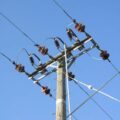 Spending money on food and beverages at work is something many of us do without a second thought. It's a normal part of our culture to grab a lunch from the closest shop, or pick up our coffee on our way to the office. It all adds up fairly quickly, whether we notice it or not.
Spending money on food and beverages at work is something many of us do without a second thought. It's a normal part of our culture to grab a lunch from the closest shop, or pick up our coffee on our way to the office. It all adds up fairly quickly, whether we notice it or not.
I used to be extremely guilty of this. I grabbed my breakfast from the same shop I got my coffee from in the morning, ran out for lunch mid-day, and almost always picked up something for dinner on the way home. After realizing how much money I was spending doing this, I decided to look into ways I could save money on this habit of mine.
1) Office Coffee Pool

You've heard of a car pool; the office coffee pool is a very similar concept. Although many offices have a coffee station, it may not stay stocked, or your office may not have one. You may have heard office coffee is not very good, but if you and your co-workers (and maybe your boss!) pool together on it, you could get some decent coffee out of this. You could also save yourself upwards of $100 a month, if not more.
2) Skip the Bottle; Hit the Tap

I will be the first to say that I buy a ridiculous amount of bottled water. However, unless you live somewhere in which the tap water is undrinkable, there's really no reason to do so. In fact, the bottle water can be worse for you than your office tap water is. Aside from the fact that you may be drinking bottled tap water anyways, you're also paying up to 300 times more than you would if you simply drank the tap water. So buy yourself a reusable bottle and drink up!
3) Bag It

This one honestly seems like the biggest “Of course!” moment on this list. At an average of $8 a day, you can spend up to $40 or more a week just buying yourself lunch. You can save yourself in the neighborhood $200 every month by simply bringing your lunch from home. Pack yourself some leftovers, or get creative – no matter how you do it, you'll be saving money and most likely eating better.
4) Homemade Snacks

Snacking between meals can help you manage your meals and more, if you do it right. However, hitting up the office vending machine for a package of candy is probably not the best use of your snacking, or your money. Snag an apple from home, or make up a batch of your favorite treat to bring instead.
5) Slow Cook Your Dinner

One of my biggest bad money habits was deciding I was too tired to cook and picking up something on my way home, or ordering in when I got home. Like lunch, this is an unhealthy and expensive habit! Rather than speed dial my local Chinese delivery place, I've learned to utilize my slow cooker and prep meals ahead of time. Now all I need to do is grab a plate and either pop a frozen homemade meal into the microwave, or dish up from the slow cooker. Going this route saves money, time (no delivery wait, or long lines!), and is a generally much healthier option than that drive-through burger or box of takeout.
6) Keep Non-Perishable Foods at Your Desk

Or in the break room, if your desk doesn't have enough space. If you have non-perishable foods, like granola bars or even canned soups, at hand for the days you forget your lunch, you still won't have to spend money on takeout. Simply grab and eat. Just be careful of expiration dates and keep a supply of resealable baggies on hand for anything that may need it!
7) Start Your Day Off Right

Earlier, I mentioned all the money you may spend at the coffee shop. Many coffee shops also offer donuts, muffins, bagels, and other breakfast or quick snack items. This helps them make more money, while it often eats a larger hole into your wallet. That $3 coffee may turn into a $7 meal with the added purchase of one of their bakery items, and that's still not counting the tip you probably left them. Try eating breakfast at home, or keeping that office pantry we just talked about stocked with items you can eat for breakfast instead. The money saving and nutritional differences between an on-the-go breakfast and a breakfast you made at home are well worth what may seem like too much effort that early in the morning.
Work doesn't have to cut into a healthy, budget-friendly diet. I hope this list helps you to save money on food at work, just like it did for me! Do you have any tips for saving money on food at the office that we didn't include here? Let us know in the comments below, and don't forget to share this list with your family and friends.


